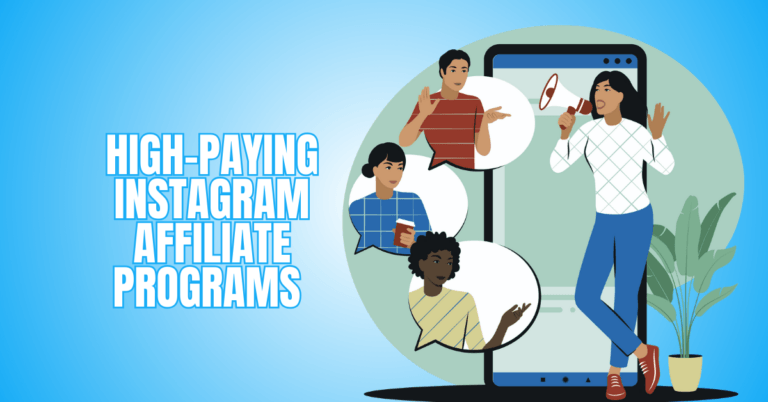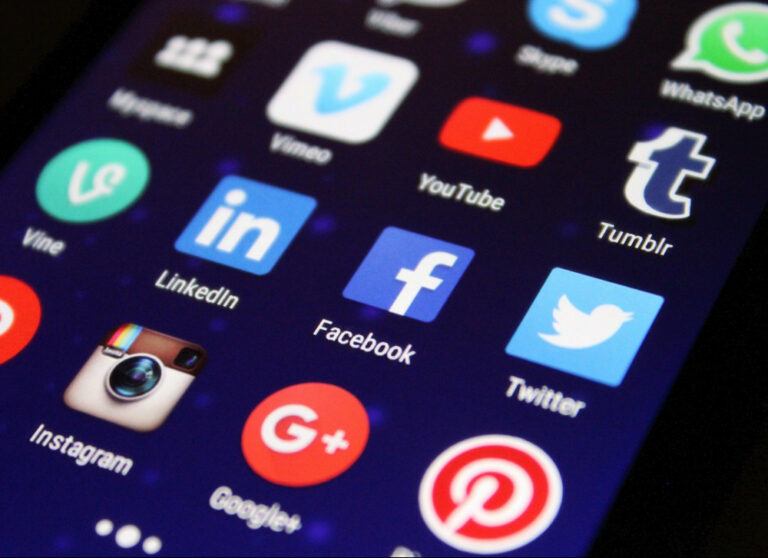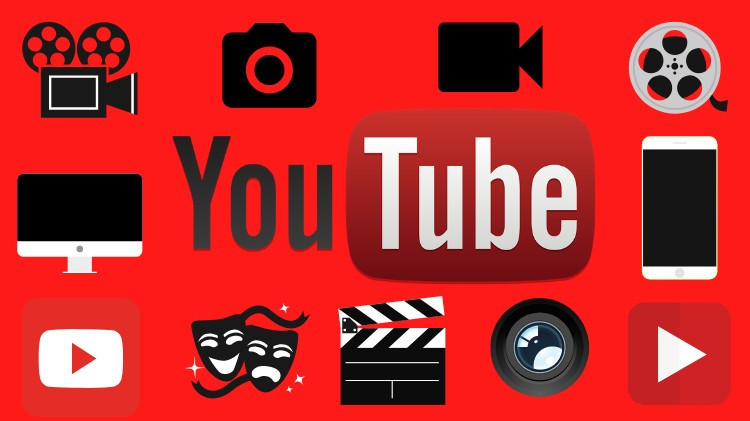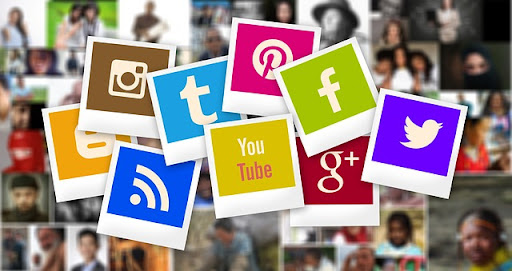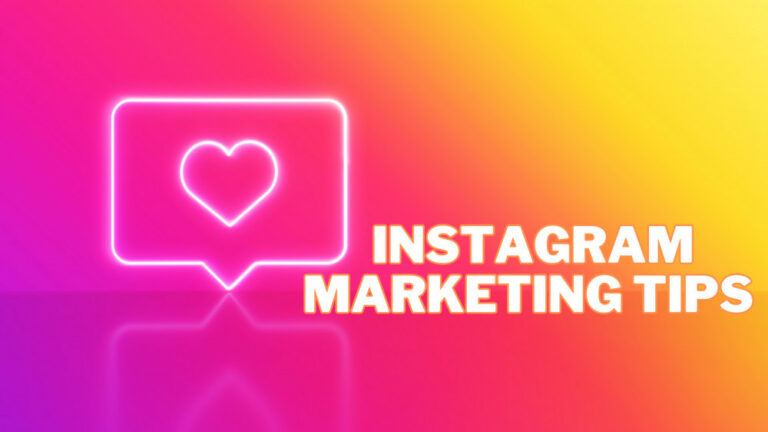16 Social Trends Examples
16 Social Trends Examples That Are Changing The World For The Better
Social trends are powerful forces shaping the world positively, influencing everything from individual lifestyles to global movements.
These trends, which range from the growth of body positivity and sustainability to the increased emphasis on diversity and mental health, show how society is moving toward more thoughtful and caring lifestyles.
In this article, we’ll explore examples of social trends that are changing how we live and driving progress towards a more equitable and responsible future.
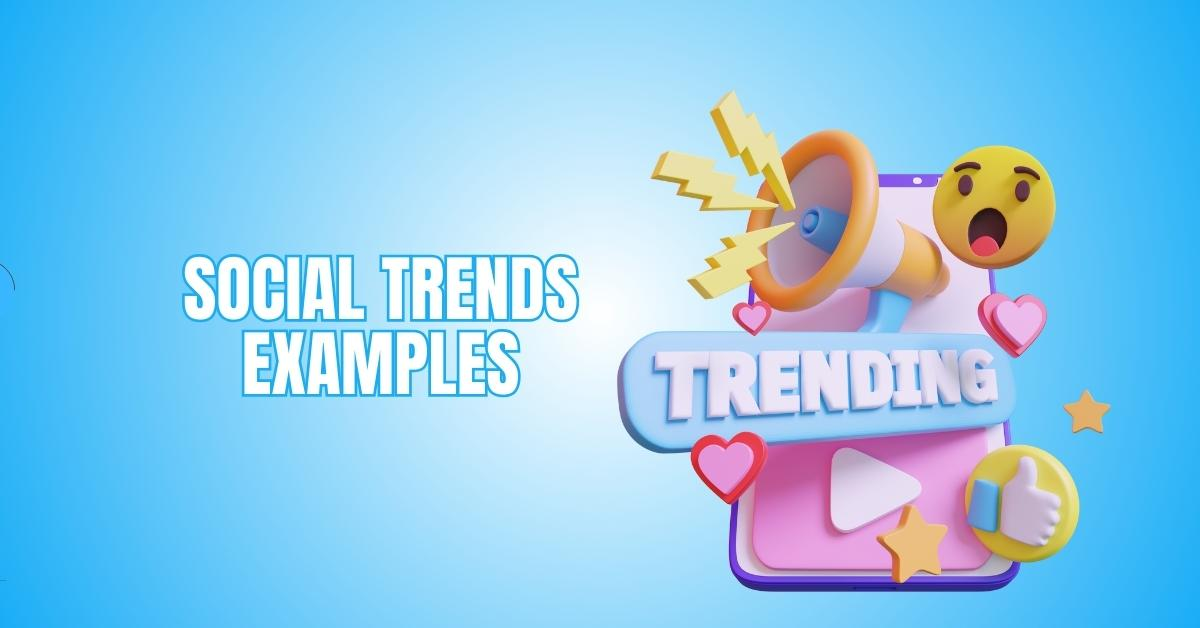
What Are Social Trends?
Social trends are patterns of behaviour, attitudes, or values that gain popularity and influence within society over time. These trends reflect how people think, communicate, consume, and interact, often driven by cultural shifts, technology, media, or social movements.
Examples include the rise of sustainability, remote work, wellness culture, or the use of short-form videos on platforms like TikTok. Social trends can shape everything from fashion and language to business strategies and public policies.
They evolve quickly in today’s digital age, influenced by viral content, influencers, and global events. Understanding social trends helps individuals and organizations stay relevant, adapt to changing expectations, and connect more meaningfully with their audience.
Social Trends Examples
These social trends reflect evolving values and behaviours shaping consumer culture. From digital detox and sustainability to remote work and body positivity, brands are adapting to a more conscious, inclusive, and experience-driven world.
1. Digital Detox And Mindful Technology Use
As people become increasingly aware of the mental and emotional toll of excessive screen time, a movement toward digital detox has gained momentum. This trend emphasizes unplugging from devices to improve focus, relationships, and well-being.
People are setting boundaries with technology, turning to physical books, journaling, and nature to restore balance. For marketers, this trend has led brands to emphasize balance and mindfulness in their messaging.
Want to Start Making Money Online?
Try My #1 Recommendation Program!
For example, tech companies may promote features like screen time monitoring, while wellness brands highlight products that support unplugged lifestyles.
A skincare brand, for instance, could create a campaign encouraging customers to unwind without screens, positioning their product as part of a self-care ritual.
- Setting boundaries with technology (e.g., screen time limits)
- Engaging in offline activities like reading, journaling, and spending time in nature
- Mindfulness and mental wellness as central goals
2. Remote Work And Hybrid Work Models
Remote and hybrid work models have revolutionized how we view productivity, flexibility, and job satisfaction. The pandemic accelerated the shift and is now seen as a permanent part of work culture.
Businesses have adapted by investing in digital collaboration tools, ergonomic office furniture, and employee wellness programs.
For marketers, this trend means targeting remote workers with products that enhance home office comfort or productivity.
A furniture brand, for example, might launch ergonomic chairs and desks while using ads that depict relatable work-from-home scenarios.
The process involves researching remote work pain points, developing solutions, and creating targeted digital campaigns through social media, email marketing, and influencer partnerships to reach professionals in remote environments.
- Flexible schedules and locations
- Digital collaboration tools (e.g., Zoom, Slack, Asana)
- Home office optimization (e.g., ergonomic furniture, productivity tools)
3. Sustainable Living And Environmental Awareness
Sustainability is no longer a niche interest but a widespread societal expectation. Consumers are more eco-conscious, preferring brands that adopt green practices, reduce carbon footprints, and promote recycling.
The demand for sustainable packaging, transportation, and production alternatives has surged. In marketing, this trend requires authenticity and transparency.
A clothing company, for instance, might shift to eco-friendly fabrics and showcase this transition in their campaigns. The process involves product innovation, acquiring certifications, and storytelling through packaging and social media.
Marketing efforts focus on educating consumers, building trust, and emphasizing the brand’s commitment to environmental responsibility, often through behind-the-scenes content, influencer collaborations, and community-driven initiatives.
- Eco-friendly packaging and products
- Carbon footprint reduction and recycling efforts
- Clear communication and authenticity in sustainability claims
4. Mental Health Awareness
Society embraces open conversations around mental health, challenging stigma and promoting emotional well-being. Mental health days, therapy, and mindfulness practices are becoming normalized in personal and professional life.
For marketers, this trend demands sensitivity and authenticity. Brands can support mental health by aligning with causes, offering wellness resources, and promoting self-care.
Want to Find Out How To Start Your Home-Based Business?
Try My #1 Recommendation Platform!
For example, a fitness app might integrate mindfulness exercises and market them through testimonials and social content.
Understanding social trends, such as the growing emphasis on mental wellness,, can help shape campaigns that resonate deeply with audiences and normalize mental health care in everyday life.
- Normalizing mental health care (e.g., counselling, apps, stress breaks)
- Promoting emotional resilience and work-life balance
- Mindful and therapeutic practices like journaling and meditation
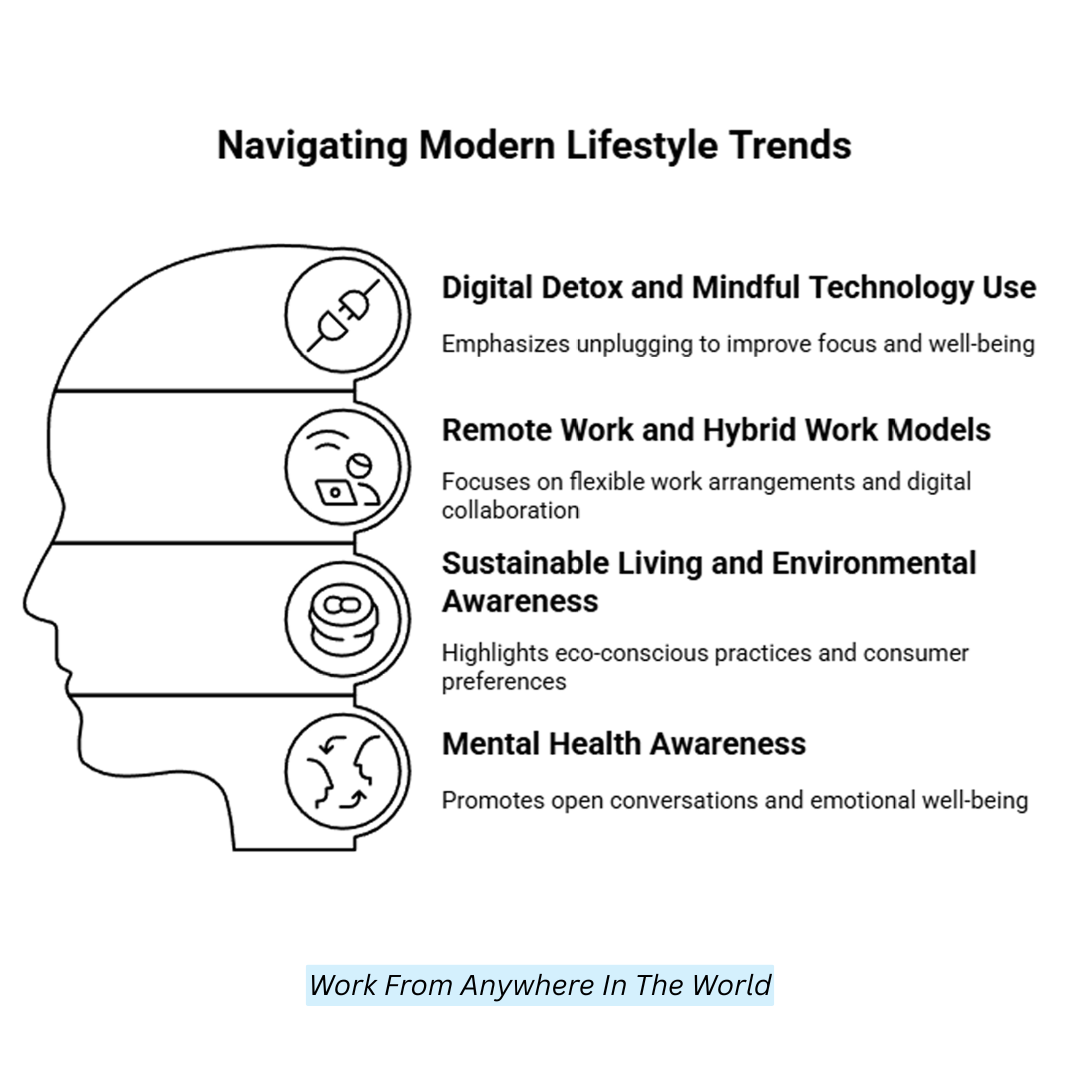
5. Diversity, Equity, And Inclusion (DEI)
Social movements have placed DEI at the forefront of public consciousness. Consumers expect brands to be inclusive in hiring practices, product design, and marketing.
Inclusive language, representation, and accessibility are non-negotiables. A cosmetics brand, for example, can reflect this trend by offering diverse skin tones and featuring real, diverse individuals in campaigns.
The marketing strategy involves inclusive market research, collaboration with marginalized communities, and developing communication that reflects genuine representation.
Successful DEI marketing shows a brand’s commitment to equity, often measured by engagement from underrepresented audiences and increased brand loyalty.
- Inclusive representation in campaigns and content
- Culturally aware and accessible products
- Use of inclusive, respectful language
6. Minimalism And Decluttering
Minimalism is one of the key social trends that encourages intentional living and reduced consumerism, appealing to those seeking peace and purpose.
It appeals to people seeking peace and purpose in a chaotic world. Rather than accumulating more, individuals aim to own fewer, high-quality items. Brands can leverage this trend by emphasizing quality over quantity.
A tech company, for example, might design sleek, multi-functional products with minimal branding. The marketing process includes creating visually clean campaigns, highlighting essential features, and aligning with minimal lifestyle influencers.
Storytelling focuses on how fewer, better products can enhance life, often using content marketing to demonstrate simplicity’s appeal across platforms like Instagram and YouTube.
- Functionality and quality over quantity
- Clean aesthetics and simple design
- Intentional purchasing and reduced waste
7. Influencer Culture And User-Generated Content
Influencer marketing and user-generated content are prime social trends, exemplifying how authenticity and peer-driven promotion shape modern brand engagement strategies.
Social proof from peers is more trusted than traditional ads. This trend reflects trust in peer recommendations and authenticity.
A skincare brand, for instance, may send products to micro-influencers who share authentic reviews. The marketing process includes identifying influencers aligned with brand values, fostering long-term relationships, and curating UGC across websites and social media.
Campaigns gain traction by showcasing real people’s experiences, driving engagement, and building community. UGC also provides social proof, making the brand more relatable and trustworthy.
- Micro-influencers and nano-influencers for niche audiences
- Authentic, relatable content over polished brand imagery
- Social proof through user reviews and experiences
8. Gig Economy And Side Hustles
The rise of freelancing and digital side hustles is a clear social trend example, highlighting how people are reshaping work around flexibility and independence. Freelancing, ride-sharing, and digital content creation are major avenues.
This trend represents an opportunity for marketers to serve a growing, dynamic workforce. A financial services firm, for example, might develop products tailored to freelancers and advertise them with messaging about independence and empowerment.
The process includes market research to understand gig workers' needs, creating responsive solutions, and executing campaigns on digital platforms like LinkedIn and Instagram. Testimonials from real users can boost credibility and resonate with entrepreneurial audiences.
- Self-employment and digital entrepreneurship
- Flexible, on-demand work structures
- Need for specialized financial and productivity tools
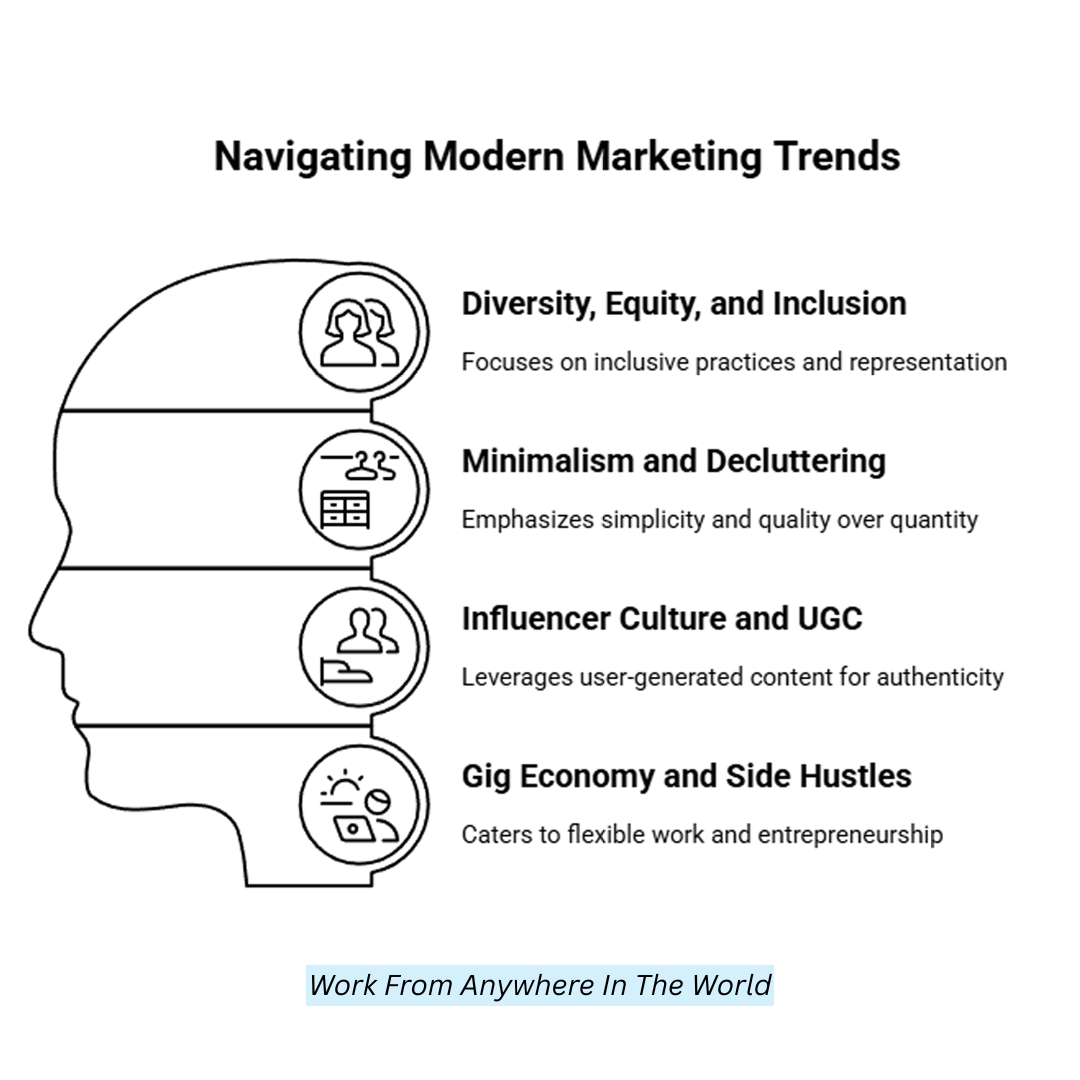
9. Health And Wellness Culture
Health and wellness culture is a prominent social trend reflecting the growing focus on nutrition, mental health, and holistic practices as part of everyday life.
Meditation, plant-based diets, and sleep hygiene have become everyday priorities. This trend drives demand for products and services that support overall well-being.
A beverage brand could capitalize by launching health drinks with natural ingredients and marketing them through wellness influencers.
The process includes identifying trending wellness topics, developing health-centric messaging, and leveraging platforms like TikTok and Pinterest.
Campaigns often focus on lifestyle storytelling, highlighting how the product fits into a balanced, vibrant life, fostering emotional connections with health-conscious consumers.
- Holistic health practices (e.g., meditation, yoga, sleep hygiene)
- Focus on clean, functional nutrition
- Mental health and self-care integration
10. Digital Activism And Social Movements
Digital activism through hashtags and viral petitions is a powerful social trend highlighting how online platforms can drive real-world change and brand accountability.
Hashtags, petitions, and digital campaigns can effect change overnight. Brands engaging with this trend must act authentically and back their stances with action.
A company might support racial justice initiatives and create campaigns promoting equity. Supporting racial justice campaigns is one of many examples of social trends where brands align with meaningful causes to connect with conscious consumers and build lasting loyalty.
Are You Tired Of Scams?
Want to Start Making Money Online?
Transparency and consistency are key, with brands expected to demonstrate a genuine commitment. Campaigns that effectively merge purpose with product can strengthen brand loyalty and attract socially aware consumers who value advocacy.
- Social impact and brand purpose alignment
- Transparency in action and messaging
- Community engagement through digital platforms
11. Gender Fluidity And Non-Binary Identities
Fashion brands launching gender-neutral collections are potent examples of social trends reflecting the growing acceptance of non-binary and gender-fluid identities.
Non-binary, gender-fluid, and agender identities are gaining visibility and acceptance. This trend impacts fashion, language, and representation.
Brands can reflect this by offering gender-neutral products and using inclusive language in marketing. For instance, a clothing company might introduce and showcase unisex collections on diverse models.
The process includes revisiting product design, updating branding guidelines, and using inclusive campaign platforms. Engagement with LGBTQ+ creators enhances authenticity and builds trust among progressive consumers, creating a brand image of acceptance and empowerment.
- Gender-neutral product offerings
- Inclusive language and pronoun usage
- Representation of diverse identities in branding
12. E-Learning And Online Education
Online education has surged, offering flexibility and access to knowledge for all age groups. Platforms like Coursera, MasterClass, and YouTube have made learning more democratized. Brands involved in education or skill development can harness this trend by offering digital learning solutions.
Edtech startups often align their offerings with social trends, such as the rise in remote work or AI literacy, to ensure course relevance and attract motivated learners.
The process includes identifying in-demand skills, developing engaging content, and targeting learners through data-driven ads.
Marketing focuses on accessibility, convenience, and outcomes, often using success stories and free trials to encourage sign-ups and demonstrate value.
- On-demand courses and bite-sized learning
- Personalized learning journeys
- Mobile accessibility and community support
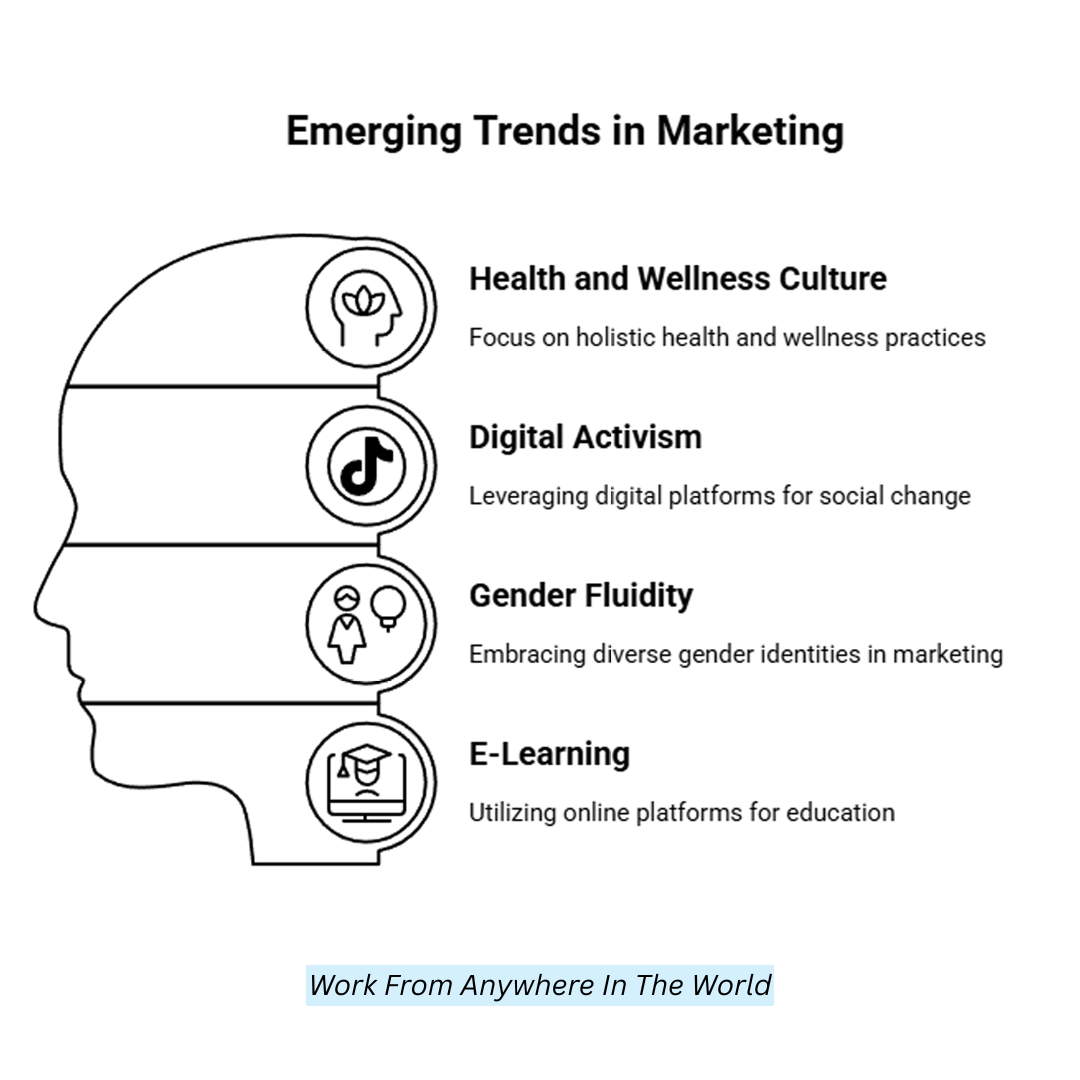
13. Cryptocurrency and Decentralized Finance (DeFi)
Cryptocurrency has introduced new financial paradigms, challenging traditional institutions. The rise of blockchain, NFTS, and decentralized exchanges has sparked curiosity and innovation. Brands in finance or tech can use this trend to appeal to early adopters and innovators.
A fintech company might launch educational webinars explaining DeFi concepts and use targeted social ads to attract crypto-curious users. The marketing process includes demystifying complex topics, ensuring compliance, and building trust.
Content strategies often involve thought leadership, real-time updates, and influencer partnerships to establish credibility and capture attention in a rapidly evolving space.
- Blockchain-based systems and digital wallets
- Decentralized exchanges (DEXS) and NFTS
- Education and accessibility challenges for new users
14. AI Integration In Daily Life
Artificial intelligence (AI) influences how people interact, work, shop, and learn as it becomes increasingly ingrained in daily life.
AI is changing efficiency and convenience through voice assistants, smart home appliances, productivity tools, and personalized suggestions. For marketers, this trend opens doors to hyper-personalized experiences and predictive analytics.
Want To Learn How To Create Your Own Website And Online Business?
Try My #1 Recommendation Training And Hosting Platform!
A retail brand, for example, might use AI to tailor product suggestions based on browsing behaviour and previous purchases.
The process involves investing in AI-driven platforms, collecting and analyzing user data responsibly, and crafting messages anticipating consumer needs.
Marketing strategies emphasize ease, innovation, and enhanced user experiences, often demonstrating how AI enhances lifestyle in real and relatable ways.
- Hyper-personalization based on user data
- Efficiency through automation and intelligent recommendations
- Human-AI interaction through voice, chat, and predictive tools.
15. Body Positivity And Self-Acceptance
Body positivity is one of the prominent examples of a social trend that challenges narrow beauty standards and promotes acceptance of all shapes and sizes.
This trend has influenced media, fashion, and fitness marketing. Campaigns now celebrate stretch marks, cellulite, and uniqueness.
A lingerie brand might feature diverse body types in its campaigns and highlight stories of confidence and empowerment.
The marketing strategy includes inclusive photoshoots, storytelling through video content, and collaborations with advocates.
Success hinges on genuine representation and continuous engagement with the community, helping brands connect with consumers on a deeply personal level.
- Celebration of body diversity
- Empowerment through representation
- Destigmatizing features like cellulite and scars
16. Experiential Consumption Over Materialism
Experiential consumption over materialism is a key social trend, as people prioritize meaningful experiences like concerts and retreats over acquiring luxury goods.
Concerts, retreats, and cultural events are prioritized over luxury goods. Brands can respond by offering immersive, shareable experiences.
A travel company could create curated trips and promote them via emotional storytelling and user testimonials. The process includes experience design, influencer partnerships, and visually rich campaigns across Instagram and YouTube.
Marketing emphasizes transformation and connection, showing how experiences can enrich life. This trend also ties into sustainability, as consumers shift from accumulation to intentional living.
- Immersive, shareable experiences
- Emotional storytelling
- Intentional, sustainable lifestyles
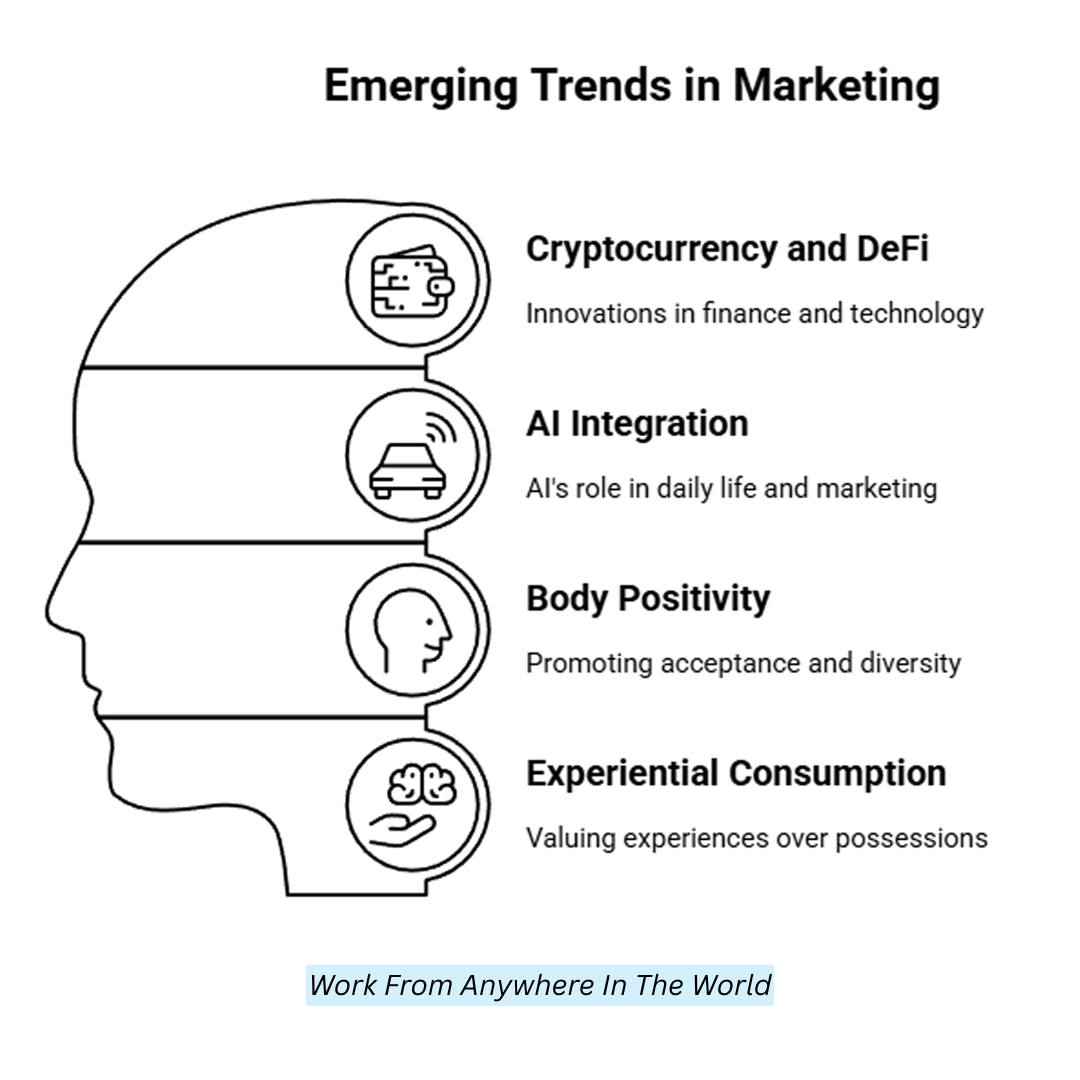
How To Contribute And Implement Social Trends In Your Business
Implementing social trends in your business can drive positive change and enhance your brand. Here are key ways to integrate these trends into your operations.
1. Adopt Sustainable Practices
Incorporate sustainability into your business by reducing waste, using eco-friendly materials, and supporting ethical sourcing.
Implement energy-efficient solutions and adopt green practices in your supply chain. Consumers increasingly prefer brands that prioritize the environment, so showcasing your sustainability efforts can enhance your reputation and customer loyalty.
2. Promote Inclusivity And Diversity
Foster an inclusive workplace by promoting diverse hiring practices, ensuring equal opportunities for all employees, and cultivating a culture of respect and belonging.
Offer instruction to increase understanding of unconscious bias and establish a secure setting for candid dialogue. Accepting diversity increases creativity and draws in great talent.
3. Focus On Mental Health Awareness
Support employees’ mental health by offering resources like counselling, flexible work hours, and wellness programs. Create a culture that prioritizes well-being and reduces stigma around mental health discussions.
Positive workplace culture, increased productivity, and improved employee retention correlate with a healthy work environment.
4. Embrace Technology And Digital Inclusion
Integrate technology to enhance customer experience and ensure digital accessibility. Use tools like e-commerce platforms, mobile apps, and accessible website designs to cater to a broader audience.
Adopt innovation and digital transformation to stay competitive and ensure that all your customers, including those with disabilities, can communicate with your business.
5. Support Social Causes And Community Engagement
Engage in community outreach and support causes that align with your values, whether through donations, partnerships, or volunteer initiatives.
Businesses that genuinely commit to social issues build trust and loyalty with customers. Supporting social causes also enhances brand reputation and reflects corporate social responsibility.
6. Encourage Employee Volunteerism
Promote employee engagement by offering paid volunteer hours for staff to give back to the community. Volunteer programs help build teamwork, foster a sense of purpose, and strengthen company culture.
Employees will feel more connected to the business, boosting morale and productivity while benefiting local causes.
7. Incorporate Ethical Marketing
Ensure your marketing campaigns align with social trends by promoting ethical practices, sustainability, and inclusivity.
Avoid greenwashing and focus on transparent messaging highlighting your company’s genuine commitment to social responsibility. Ethical marketing helps build customer trust and strengthens your brand’s reputation in a competitive market.
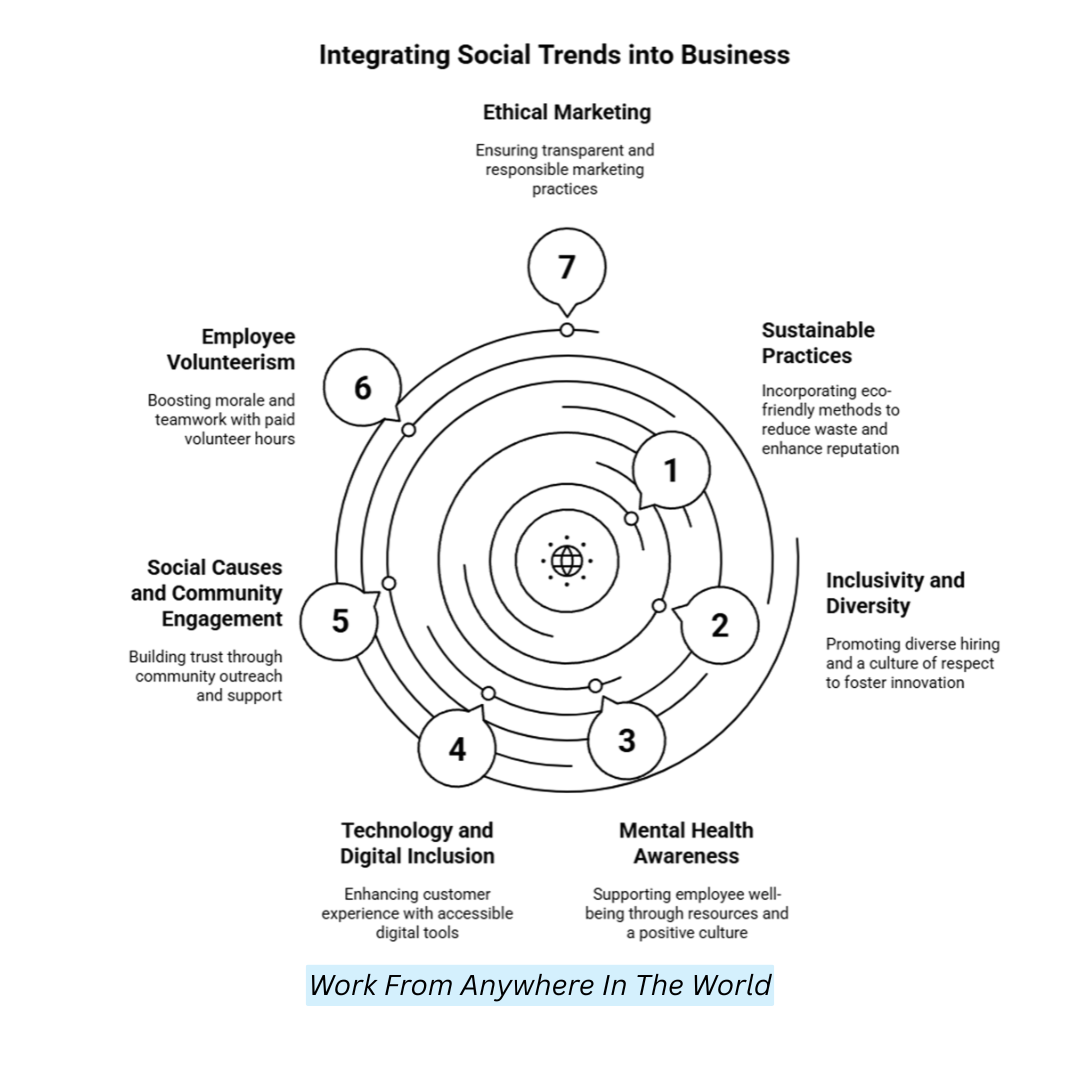
Conclusion
As we continue to witness the evolution of Social Trends Examples, it’s evident that small changes can lead to global progress. We each contribute to a brighter, more inclusive future by embracing these positive shifts.
Whether through sustainable choices, advancing equality, or supporting mental health, these trends offer hope and direction. The power lies in our collective effort to turn these examples into a lasting impact for the betterment of society.
I trust you enjoyed this article about How To Install A WordPress Theme. Please stay tuned for more articles. Take care!
JeannetteZ
Want to Learn How to Build Your Own Home-Based Online Business And Start Making Money Online From Your Comfortable Couch?
Try Wealthy Affiliate!
Your Opinion Is Important To Me
Do you have thoughts, ideas, or questions? I would love to hear from you. Please share your questions, experiences, remarks, and suggestions about How To Install A WordPress Theme in the comments below. You can also email me at Jeannette@WorkFromAnywhereInTheWorld.com.
Disclosure
This post may contain affiliate links. I earn from qualifying purchases as an Amazon Associate and through other affiliate programs. Please read my full affiliate disclosure.
You may also enjoy the following articles:
Wealthy Affiliate Coupons For Premium Memberships
Wealthy Affiliate Review – Scam or Legit? The Truth Exposed
An Insider Wealthy Affiliate Review
Best Social Media Content Ideas
Best Social Media Analytics Tools


